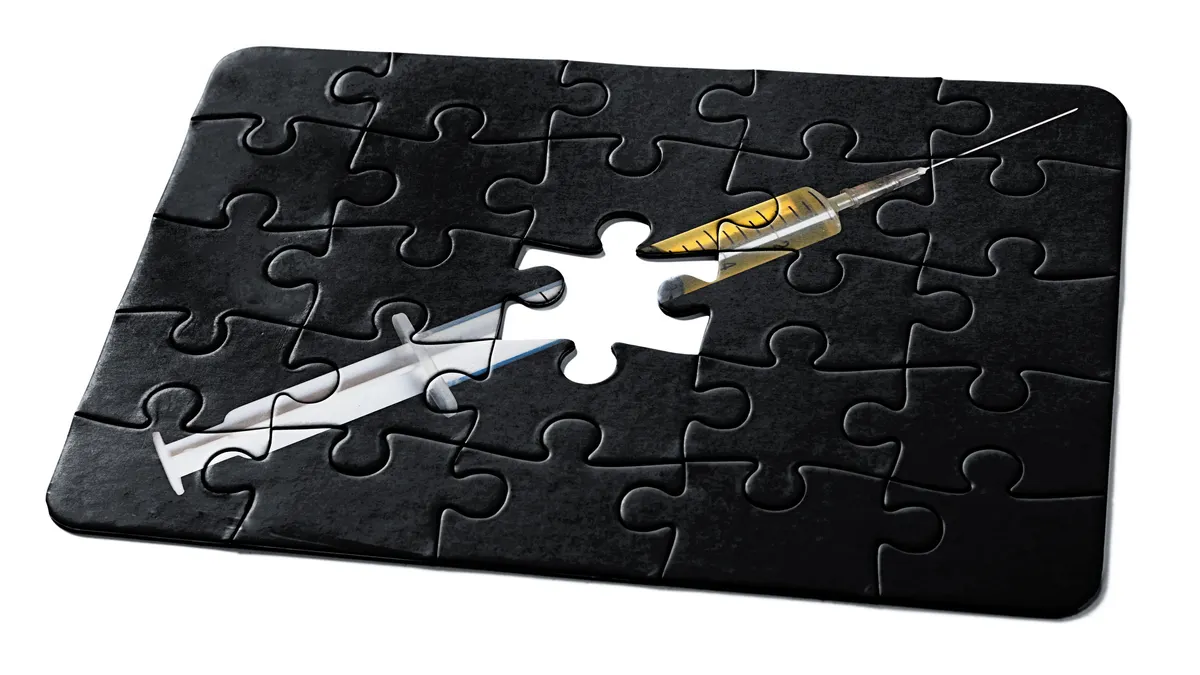Today, we easily recognize terrorism, pandemic flu, and hurricanes as potential disasters …the latter being an event that we in New Orleans know all too well. A hurricane named Katrina was our disaster…and a vivid example of how a lack of preparation and structural-weakness can eventually be catastrophic. An unsettling parallel is unfolding as we look toward the next generation of research professionals. Too often training uses rote-techniques or results from compliance-driven, corrective-action plans. We must change this and utilize techniques that maximize critical thinking and problem-solving, or ultimately risk systemic-failure. We must not wait to be told the right thing to do, but rather act prospectively, accept responsibility, and do the right thing. It’s no coincidence that one of the first reality shows was entitled “Survivor." Reality is indeed the best teacher. Ironically, the pharmaceutical industry has yet to fully embrace reality-based education in clinical operations. The use of medical simulation to train clinical research associates (CRAs) in monitoring Phase I protocols is not typical clinical research education. However, we believe this type of innovation is necessary for future excellence. GCP Training … Good Clinical Practice or Time to Go Call People? Too often, the mere utterance of GCP or good clinical practice training illicit groans from an audience. Admittedly, it’s at this point during most investigator meetings when attendees conduct their own GCP or “go call people." This is an understandable response given the typical and rudimentary information delivered. If a person attending an investigator meeting isn’t aware of 21 CFR Part 50, this isn’t the time or venue to teach about the protection of human subjects. So why do most content providers and or trainers go through the motions of reciting “regulatory scripture?" In the setting described here, a better approach would be to design engaging educational-strategies via protocol-simulation so that “good clinical practice" is integrated into teaching protocol requirements. The result: people return phone calls later and compliance improves. It’s time for a Needs-Analysis in Training Efforts Do companies ever actually profile those they seek to train? How can meaningful education be established without first defining existing knowledge or skill sets? It is critically important to understand what ultimate success means to the individual, the functional role, and the protocol. When designing training strategies in clinical operations, the first step is to perform a needs analysis for even the smallest project. To get a complete picture, it’s important to seek the perspectives of all of those responsible for study conduct. Additional input from a provider’s quality assurance division can help identify potential compliance concerns. By gathering this information before training begins, educational programs target areas where protocol compliance is likely to be strained. When focusing the training to specific areas, potential conflicts can be uncovered after comparing perspectives of each role. When problem-solving activities are set among data managers, monitors, coordinators, investigators, and other members of the study team, realistic solutions are revealed and from a prism of perspectives. The end result is a meaningful discussion about specific challenges with identification and communication around team-designed solutions. Plan, Educate, and Implement Within clinical operations, this type of parallel training for projects works well with clients who recognize the long-term value of protocol-simulation and other alternative training methods. These organizations seek to further the spirit of discovery and ensure all educational activities are outcome-focused. Through this approach it’s possible to elevate the team-concept, embrace perspectives across roles, and teach application of the regulations. In addition, a clear focus on protocol objectives is established. As a result, processes can be taught that maximize the protection of study participants and ensure valid data. Aren’t these the very principles of good clinical practice? A recent case study highlights the success of this type of approach when protocol-specific, interactive-sessions were partnered with subject recruitment initiatives. Clinical investigators, coordinators, CRAs, and project managers were presented with protocol-specific program samples, examples of FDA warning letters in similar settings, and other compliance challenges. Teams embraced each protocol challenge and defined the methods needed to meet each area of concern. As a result, protocol specifics were reinforced while application of the regulations was illustrated. More importantly, all groups aligned to establish a common goal, contributed their knowledge and experience, and defined realistic solutions. After these sessions were completed, an immediate and positive impact was seen with subject accrual. What the exercise failed to measure, but should do so for future programs, was the sense of contribution each person experienced as a result of participating in this type of training. Expanding these types of targeted-training techniques and pairing them with evolving technologies, such as medical simulation, will further meaningful learning opportunities. For example, many medical simulation facilities, such as Tulane University in New Orleans (www.simcenter.tulane.edu), are now equipped with live video-streaming and recording capabilities. The opportunities are infinite as technology allows trainers and program developers to realistically convey the many facets of study conduct and include human-interaction. Technology also allows for the coordination with other simulation facilities around the globe, such that access and delivery are immediately available. Through the human interaction possible during medical simulation activities, protocol requirements can be taught in the reality of each study setting. You Can’t Teach People to Care…or Can You? For a person to care, he or she must envision individual contribution. To envision the contribution, one must understand and embrace the larger goal, which in our industry is getting safe and effective products to market. Experience proves that identifying the right motivational factor is significantly more important than the choice of training technique. One’s knowledge base can be expanded but core values and personalities are innate. Individuals succeed when they are acknowledged, empowered, supported, and when their contributions are revealed. Teams respond in the very same way. To achieve these goals, there are several critical factors that should be included as part of the training program, as they are the keys to success in today’s clinical operations environment: • Team awareness exercises to clarify roles and responsibilities • Conflict resolution and information sharing activities • Critical thinking and responsibility-focused decision-making exercises • A cultural awareness plan to expand one’s consideration for the community • Evidence-based team training to address global considerations Sustaining Our Industry It has been reported that adults were reluctant to wear automobile seatbelts until laws required children to be placed in similar restraints. We have a similar opportunity in clinical operations by teaching our youth about research. Organizations such as CISCRP (www.ciscrp.org) seek to promote the positive aspects of research participation. Why not expand these efforts into secondary schools, the Girl Scouts, 4-H Clubs, or other community-based organizations? Each of these groups offers us an opportunity to teach our youth about innovation, the process of product development, and how they might contribute to our industry. Humans are indeed socialized beings and successful operations teams embrace the “village" concept. Members of the clinical operations village include study participants, sponsor/CRO clinical operations teams, investigators and study sites, and equally important are ethics committees, regulatory agencies, and other stakeholders. For any project to succeed, the village must succeed. Professor Randy Pausch, author of “The Last Lecture" notes we should be “communitarians" and that any community that conveys rights equally commands responsibility in return. This is a concept that should be embedded into every company and person who provides clinical research services; we all have rights as members of this valuable community and those rights come with responsibilities. Future Efforts While the economy, war, and other disasters outside of our control continue to threaten our industry, it’s important we address the risk of educational apathy, something we can control. A quote by Cora Christian, M.D., reminds us of another imposing risk: “Drug development and hurricanes have much in common. .. what takes years to build can be destroyed in only a moment" (DIA Annual meeting, June 2005). This quote has particular relevance to us at Aureus, as we are based in the greater New Orleans area. We view new and alternative training methods in clinical research education as a parallel to the rebuilding efforts underway in New Orleans as a result of hurricane Katrina. Our partnerships with local colleges and universities highlight new and exciting methods to simulate study conduct in specific settings, such as Phase I. There are reasons social networking Websites have exploded. Humans still seek to connect, experience, and share. For the next generation of research professionals, we must teach using technologies that allow us to pair the human-connection with the spirit of innovation. “When" we start these new methods will drive our progress. “How" we educate will define our success. It is true that small things can become larger; let’s remember, hurricane Katrina began as only one wave. n Aureus Research Consultants LLC You Can’t Teach People to Care or Can You? Educating the next generation of research professionals through medical simulation and other alternative training methods. Alicia Pouncey, MEd Managing Director Aureus Research Consultants LLC is a New Orleans-based clinical research services organization that has extensive experience in clinical operations, and leverages this knowledge across its education, monitoring, and auditing divisions. For more information, visit aureusresearch.com.
An article from


You Can't Teach People to Care or Can You?
Filed Under:
Research & Development








